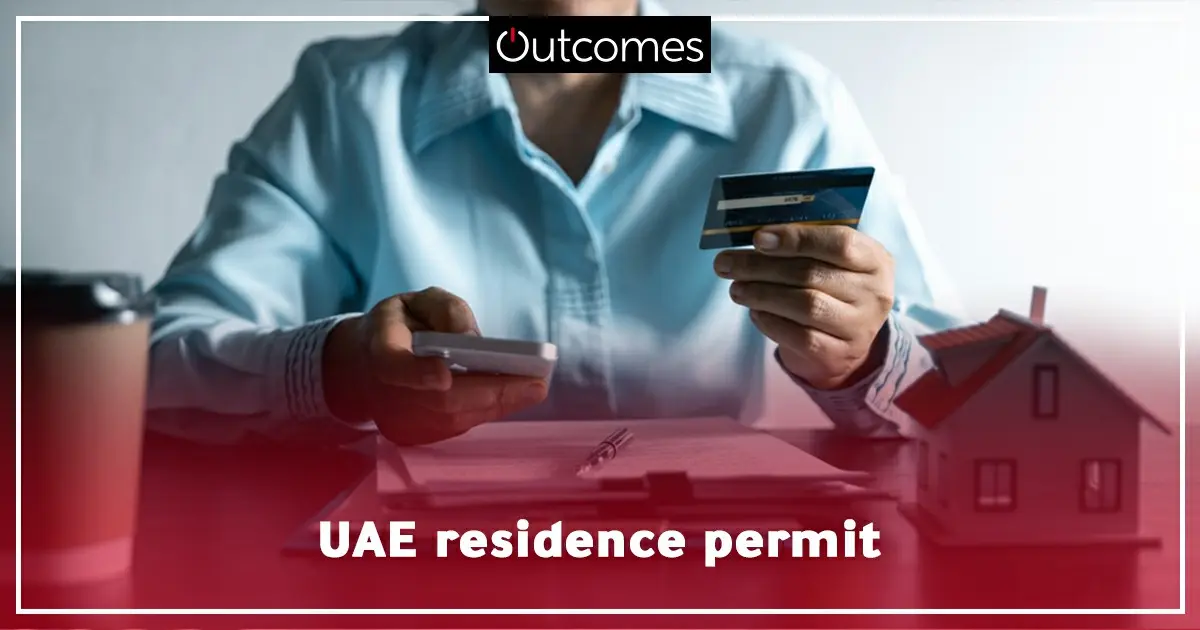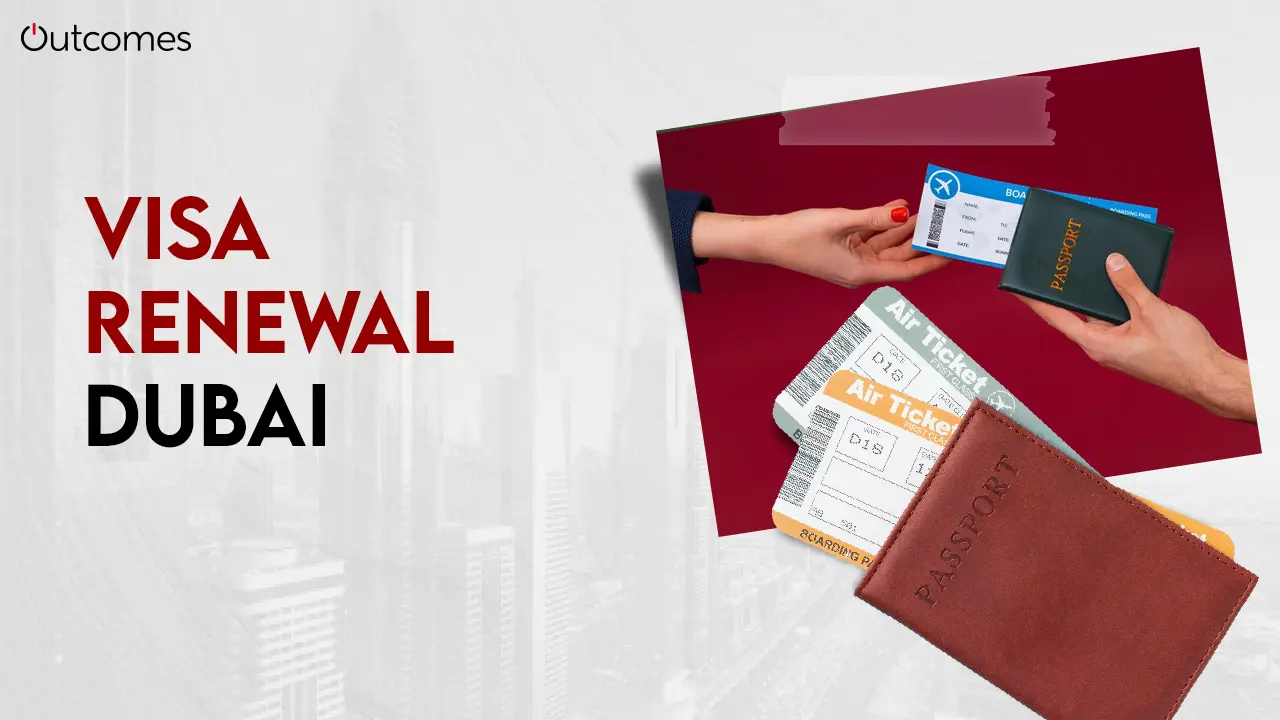Welcome to the UAE, where the dream of a vibrant lifestyle meets reality! Whether you’re drawn by the bustling business opportunities in Dubai, the cultural richness of Abu Dhabi, or the serene landscapes of Sharjah, securing a UAE residence permit is your key to unlock countless possibilities in this dynamic country.
The permit allows individuals to legally reside and work in the country, subject to visa regulations and employment conditions.

UAE Residence Permit for working in the UAE
Securing a UAE residence visa for employment purposes in the UAE is a crucial step for expatriates seeking to work and reside in the Emirates. To obtain a work visa, individuals must first secure employment with a UAE-based company. The employer typically sponsors the visa application process, guiding employees through the necessary steps.
UAE Residence Visa: Types of Residence Visas for Dubai
Dubai offers a variety of residence visas to cater to different lifestyles and objectives.
- The employment visa is the most common type, sponsored by employers, allowing employees to legally reside and work in the UAE.
- The investor visa is designed for entrepreneurs, investors, and business owners who want to contribute to Dubai’s economy.
- The family sponsorship visa allows UAE residents to sponsor their family members, allowing them to live together in Dubai.
- The student visa allows students to enroll in accredited educational programs while residing in Dubai.
- The retirement visa allows retirees to enjoy their golden years in Dubai. The Golden Visa program attracts talent, investors, and high-net-worth individuals to the UAE by offering long-term residency benefits.
- Specialized visas cater to specific professions and industries, such as artists, athletes, and healthcare professionals. Dubai’s array of residence visas ensures that there is a suitable option for every aspirant seeking to call this dynamic city home.
7 Ways to Obtain a UAE Residence Permit
Securing a residence visa in the UAE is a pivotal step for individuals aspiring to live and work in this dynamic country. Whether you’re drawn by the bustling metropolis of Dubai, the cultural richness of Abu Dhabi, or the serene landscapes of Sharjah, To obtain a UAE residence permit, you must first secure a valid visa. There are several avenues available for obtaining a UAE residence visa. Let’s explore seven common methods:
1. Employment Sponsorship
Employment sponsorship is a straightforward method for individuals securing a UAE residence visa, as employers sponsor their visas.
2. Property Investment
Property investment in the UAE can also lead to residency opportunities, as property investors meet specific investment thresholds.
3. Family Sponsorship
Family sponsorship allows UAE residents to sponsor their family members for residency, fostering unity within the expatriate community.
4. Setting Up a Business
Entrepreneurs can establish companies in the UAE and apply for entrepreneur visas, which grant residency privileges.
5. Special Investor Visas
Special investor visas, such as the Golden Visa scheme, target high-net-worth individuals and stimulate economic growth.
6. Student Visas
Students pursuing higher education can obtain residence visas through their educational institutions
7. Retirement Visas
Retirees can explore retirement visa options tailored to their age and financial requirements.
and These various pathways allow individuals to secure their spot in the UAE and enjoy its diverse and vibrant culture.
New Dubai Residence Visa, Fees, Renewal, Cancellation
As Dubai continues to evolve, so do its visa regulations. Stay updated on the latest visa requirements, fees, renewal procedures, and cancellation policies to ensure a smooth and hassle-free residency experience in the city of dreams. The UAE residence permit allows expatriates to legally reside and work in the country.
A Detailed Guide About Getting UAE Residence Permit
Embark on your journey to UAE residency with confidence by following our comprehensive guide. From contact Outcomes to navigating government procedures, we provide step-by-step instructions to streamline the visa application process.
contact us on whatsapp
Obtaining a residency visa in the UAE is a crucial step for individuals seeking to establish long-term residency in this dynamic country. Whether you’re moving to Dubai, Abu Dhabi, or any other emirate, understanding the visa application process is essential. Let’s delve into a comprehensive guide on how to obtain a residency visa in the UAE:
1.Understand Visa Eligibility Criteria
2.Secure Sponsorship or Employment
3. Prepare Required Documents
Gather all necessary documents for your visa application, including:
Passport copies (valid for at least six months)
passport-sized photographs
Employment contract (if applicable)
Educational certificates (for student visas)
Marriage certificate (for family sponsorship)
Proof of accommodation
Medical fitness certificate
Renewing your UAE residence permit requires submitting the necessary documents to the immigration authorities.
4. Submit Visa Application
5. Undergo Medical Screening
6. Complete Biometric Enrollment
7. Await Visa Approval
8. Receive Residence Permit
UAE residence visa-free countries list
UAE residents can enjoy visa-free travel to select countries worldwide, including the Schengen Area Countries, the United Kingdom, Singapore, Malaysia, Seychelles, Turkey, and Mauritius.
Who is eligible for a UAE Residence Visa?
Understanding the eligibility criteria is essential for aspiring UAE residents. Whether you’re a skilled professional, an investor, or a family member of a UAE citizen or resident, there are specific requirements you must meet to qualify for a UAE residence visa.
The eligibility criteria for obtaining a UAE residence visa vary depending on the visa category and the applicant’s circumstances. Generally, the following individuals may be eligible for a UAE residence visa:
1. Employees Sponsored by UAE Companies
2. Investors and Business Owners
3. Family Members of UAE Residents
Students Enrolled in UAE Educational Institutions
5. Retirees
6. Individuals with Specialized Skills or Talents
7. Individuals Sponsored by Government Entities
What are the requirements for a Residence Visa UAE?
Gather your documents and prepare for the visa application process by familiarizing yourself with the necessary requirements. From passport copies to health screenings, we outline the prerequisites for obtaining a UAE residence visa.
Obtaining a UAE residence visa involves fulfilling certain requirements mandated by the UAE immigration authorities. While specific requirements may vary depending on the visa category and individual circumstances, some common prerequisites include:
1. Valid Passport
2. Passport-Sized Photographs
3. Medical Fitness Certificate
Applicants for a UAE residence permit must undergo medical examinations as part of the visa application process.
4. Employment Contract (If Applicable)
5. Educational Certificates (If Applicable)
6. Marriage Certificate (For Family Sponsorship)
7. Proof of Accommodation
8. Biometric Data
9. Sponsorship Documentation
10. Financial Documentation
How to apply for a Residence Visa in the UAE?
Ready to kick start your UAE residency journey? Follow our detailed guide on the visa application process, including online submissions, in-person appointments, and document attestations, to ensure a successful outcome.
Applying for a UAE residence visa involves several steps, and the process may vary depending on the visa category and individual circumstances. Here’s a general guide on how to apply for a UAE residence visa:
1. Obtain Sponsorship
2. Gather Required Documents
Collect all necessary documents required for the visa application process. This typically includes a valid passport, passport-sized photographs, medical fitness certificate, employment contract (if applicable), educational certificates (for students), marriage certificate (for family sponsorship), proof of accommodation, and sponsorship documentation.
3. Submit Visa Application
4. Undergo Medical Screening
5. Complete Biometric Enrollment
6. Await Visa Approval
7. Receive Residence Permit
The difference between the UAE Entry Permit and Residence Visa
Clarify any confusion surrounding entry permits and residence visas in the UAE. While entry permits grant temporary access to the country, residence visas offer long-term residency rights to individuals and their families.
Understanding the distinction between a UAE entry permit and a residence visa is essential for individuals planning to travel to or reside in the UAE. While both documents facilitate entry into the country, they serve different purposes and have distinct characteristics:
UAE Entry Permit
An entry permit, also known as a visit visa or tourist visa, grants temporary entry to the UAE for a specific purpose and duration. It is typically issued to individuals intending to visit the UAE for tourism, business meetings, medical treatment, or short-term visits to family or friends.
Characteristics of UAE Entry Permit:
- Temporary Stay: Entry permits are valid for a limited period, ranging from a few days to several months, depending on the visa type and purpose of visit.
- Single or Multiple Entry: Entry permits may allow for single-entry or multiple entries during the validity period, enabling travelers to enter and exit the UAE multiple times within the specified timeframe.
- Limited Scope: Entry permits do not confer residency status or grant permission to work or engage in long-term activities in the UAE. They are intended for temporary visits only.
UAE Residence Visa
A residence visa, on the other hand, permits individuals to reside in the UAE for an extended period, usually for the purpose of employment, family sponsorship, education, or retirement. It grants legal residency status and allows individuals to live and work in the UAE on a long-term basis. Holding a UAE residence permit grants access to various benefits, such as healthcare and education.
Characteristics of UAE Residence Visa:
- Long-Term Stay: Residence visas provide authorization for individuals to reside in the UAE for an extended duration, typically ranging from one to three years or more, depending on the visa category and sponsor.
- Employment Authorization: Residence visa holders are permitted to work for their sponsoring employer or establish their own business in the UAE, subject to applicable labor laws and regulations.
- Family Sponsorship: Residence visa holders can sponsor eligible family members, including spouses, children, and dependent relatives, to reside with them in the UAE.
- Access to Services: Residence visa holders are entitled to access healthcare, education, and other public services available to residents of the UAE.
In summary, while both the UAE entry permit and residence visa facilitate entry into the country, they serve distinct purposes and cater to different needs. Entry permits are suitable for short-term visits, tourism, or business trips, whereas residence visas provide the legal right to reside and work in the UAE on a long-term basis.
UAE Residence Visa fees
The process of obtaining a UAE residence visa involves several fees, including visa processing, medical examination, Emirates ID, visa issuance, renewal fees, and sponsorship fees. The visa processing fee covers administrative processing, document verification, and other expenses. Medical examinations are required for obtaining a fitness certificate, which is mandatory for obtaining a residence visa. The Emirates ID is mandatory for residents aged 15 and above.
The visa issuance fee covers issuance and documentation, including stamping on the passport. Renewal fees apply for long-term residence visas, and sponsorship fees may be incurred by sponsors. It is crucial to consult with authorities or immigration experts for accurate information on UAE residence visa fees and to consider additional expenses when budgeting for the visa application process.
Grace period for residence visa renewal
A grace period for residence visa renewal after visa cancellation is the time window a temporary resident has to renew their permit or leave the country.
This duration is non-existent for those with visitor visas. However, the different types of residence visas have grace periods between 30 to 180 days from the date of cancellation. If exceeded, overstaying attracts a daily AED 50 fine.
How long can I stay with a UAE Residence Visa?
The duration of a UAE residence permit depends on the type of visa and employment contract.
UAE residence visas allow holders to stay in the country for extended periods, allowing them to live and work legally. The duration of stay varies depending on the type of visa and the sponsoring entity. Employment-based visas are for employees sponsored by UAE companies, while family sponsorship visas allow family members to reside with their sponsoring family member.
Student visas are sponsored by universities or colleges, and retirement visas allow retirees to reside in the country during their retirement years. Investor and business owner visas are tied to their business activities, and specialized skills visas are for individuals with beneficial contributions to society or specific industries. It is essential for visa holders to adhere to the validity period and renewal requirements to maintain legal status and avoid penalties for overstaying.
What’s the UAE Residence Visa expiry grace period?
The UAE offers a grace period for expired residence visas, allowing individuals to renew their visas without facing penalties for overstaying. The grace period typically lasts 30 to 90 days, depending on the emirate and specific circumstances. It allows individuals to rectify their immigration status without incurring fines or penalties. Renewal procedures include submitting required documentation and fees to immigration authorities or processing centers.
Failure to renew within the grace period may result in penalties like fines or deportation. In exceptional circumstances, individuals may request an extension of the grace period, subject to review by immigration authorities. It is crucial to proactively initiate the renewal process and comply with immigration regulations to avoid legal consequences.
UAE Visa renewal for divorced women and widows
UAE visa renewal procedures for divorced women and widows are unique due to their unique circumstances. Divorced women need a valid divorce certificate, sponsorship transfer, death certificate, and proof of widowhood. Widows need a death certificate of their deceased spouse and proof of widowhood.
Divorced women may need new sponsorship or employment sponsorship. Widows can be sponsored by their deceased spouse’s family members or employment sponsors. The visa renewal process involves application submission through the UAE’s immigration portal, visa processing centers, or government offices. Accurate documentation is required to avoid delays. Medical examinations may be required for visa renewals. Follow-up and compliance are crucial for timely processing. Adherence to visa renewal deadlines and immigration regulations is essential for maintaining legal residency status in the UAE.
What Happens If I Leave The UAE For More Than 6 Months? (UAE Re-entry Rules)
The UAE’s re-entry rules for extended absences, particularly over six months, are crucial for residents planning their return to the country. These rules include visa validity and renewal, residency status, re-entry visa requirements, and potential penalties. Valid UAE residence visas typically have a validity period of one to three years, and prolonged stays outside the country may affect residency status.
Re-entry visa requirements vary depending on the individual’s visa status, nationality, and the duration of the absence. Failure to comply may result in fines, deportation, or restrictions on future entry into the UAE. Consultation with immigration authorities, legal experts, or consultants is recommended for guidance and assistance in navigating visa processes and ensuring compliance with UAE immigration regulations.
It’s essential to keep your UAE residence permit valid at all times to avoid any disruptions to your stay in the country.
Abu Dhabi residence visa
An Abu Dhabi residence visa is a document that grants individuals the legal right to reside in Abu Dhabi. This visa is typically obtained through sponsorship by an employer, family member, or property ownership in Abu Dhabi. Whether for employment opportunities, family reunification, or investment purposes, obtaining an Abu Dhabi residence visa is a vital step for those seeking to establish a long-term presence in the emirate.
Once acquired, the residence visa allows individuals to live, work, and enjoy the myriad opportunities and amenities that Abu Dhabi has to offer, including access to world-class healthcare, education, and cultural experiences. However, it’s important to adhere to the visa regulations and renewal procedures to ensure continued legal residency in Abu Dhabi.
FAQS:
How can I get a residence permit in UAE?
To obtain a residence permit in the UAE, individuals must meet specific eligibility criteria and submit a comprehensive application through relevant channels. Whether for employment, investment, or family reunification, there are various pathways to secure residency in the Emirates.
What is the new Rule for residence visas in UAE?
Stay updated on the latest developments in UAE visa regulations to ensure compliance with new rules and requirements. From changes in eligibility criteria to updates in application procedures, understanding the latest visa policies is essential for aspiring UAE residents.
How much is a 2-year residence visa in UAE?
The cost of a 2-year residence visa in the UAE varies depending on various factors, including visa category, applicant’s nationality, and additional services required. Consult with relevant authorities or immigration experts to obtain accurate pricing information tailored to your specific circumstances.
How long is the residence permit in the UAE?
Residence permits in the UAE come with varying validity periods, ranging from short-term to long-term visas. Depending on the visa category and individual circumstances, residence permits can be valid for one, two, or three years, with options for renewal upon expiration.




